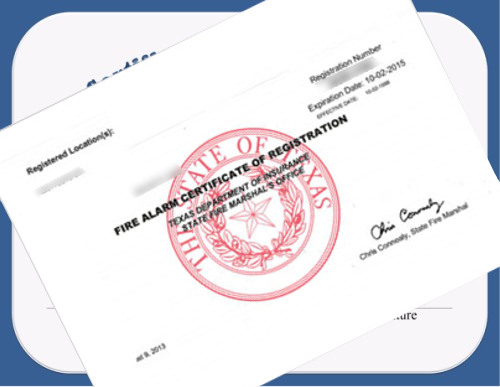The importance of fire alarm code and why we must stick to it.

What are we?
Fire alarm systems will not prevent a fire and will not stop the spread of fire. What they do is warn people. They alert people that a danger is present. Without proper warning people cannot take proper action to either begin their attempt at extinguishing the fire, saving other lives, or escaping.
We are the people who install the first notice of danger and threat of injury or death. Our trade is what people quietly count on. If we do a poor job, people get injured, people die, possessions get destroyed. Companies get sued. We get sued.
Your license says what you are capable of. You cannot say “Well, I didn’t know”. You were tested for it. You proved that you do know. It is your competence license. If you really do not know, then you should not be installing fire alarm systems. EVER. You most certainly should not be commanding or dispatching people who install fire alarm systems. You should be somewhere else doing something totally different and not touching these systems.
Focus on safety of the people who have to rely on your install.
Why do we have code?
Fire alarm code is a series of rules, laws, and codes combined to standardize the installation of a fire alarm system. Each rule, law, and code has been and will always be tested time and again to verify the best use in all scenarios; from the type of wires used to build the device, to the type of material the device is made of, to the height the device will function best - to the wires powering the device and sending data from the device and to the panel or from the panel to the device. The type of wire determines the temperature the wire can reach before failure of the device or possible ignition of a fire. The type of material determines if the device will be flammable and what happens when the device reaches a specific temperature. Will the device melt and drip fire onto the floor and further spread fire? Hopefully it will not. If the device is too high, can someone reach it to initiate it or is it too high to be seen or heard? So many other features and functions. All this matters. Every code has a purpose. The insurance companies are not out to ruin the industry. They created the industry. They created the codes we must follow. They test us (when we get our license or certification) to see if we are competent enough to follow their rules so that we can install the necessary items as intended during the design of the device. It is a series of checks and balances from manufacture to installer, to the scheduled inspection.
No Shortcuts
There are no shortcuts to fire alarm installation. There is no easier way to install a fire alarm system. If you use easier ways and shortcuts, you are not installing a fire alarm system. You are installing what looks like a fire alarm system but does not function 100% as intended; or is not located as intended or wiring is not in the safest location as intended. The fire alarm system needs to function at 100% of the expected performance of a fire alarm system. The fire alarm system needs to perform at its best to provide the proper detection and notification to save as many lives as it can.
No interpretation of code
You either read the code correctly with no distractions and opinions, or you are wrong. If you follow code word for word, you will find there is an exact process that you are to design, inspect, test, and install to, and anything outside of that code only adds time and useless processes or problems. If you work outside of code, you will find that the work gets harder. Once you understand why it must be installed in a certain way, the job starts to fall into place. Improvising in this industry is unsafe for the sake of being too lazy to learn. Skipping the learning process is what makes your work unworthy of being considered life safety. Improvising the learning process makes your installs, designs, tests, and inspections unworthy of protecting living people.
In Summary
Follow protocol and this gets easier. Learn the protocol in the steps you are supposed to learn, and teach it as you are supposed to teach it. There is a format. There is an organized structure to learn fire alarm to progressivly move someone on to the next level and show them why it is important to enjoy the leveling up. In the process, they become more than what they would be had they learned the wrong way first.